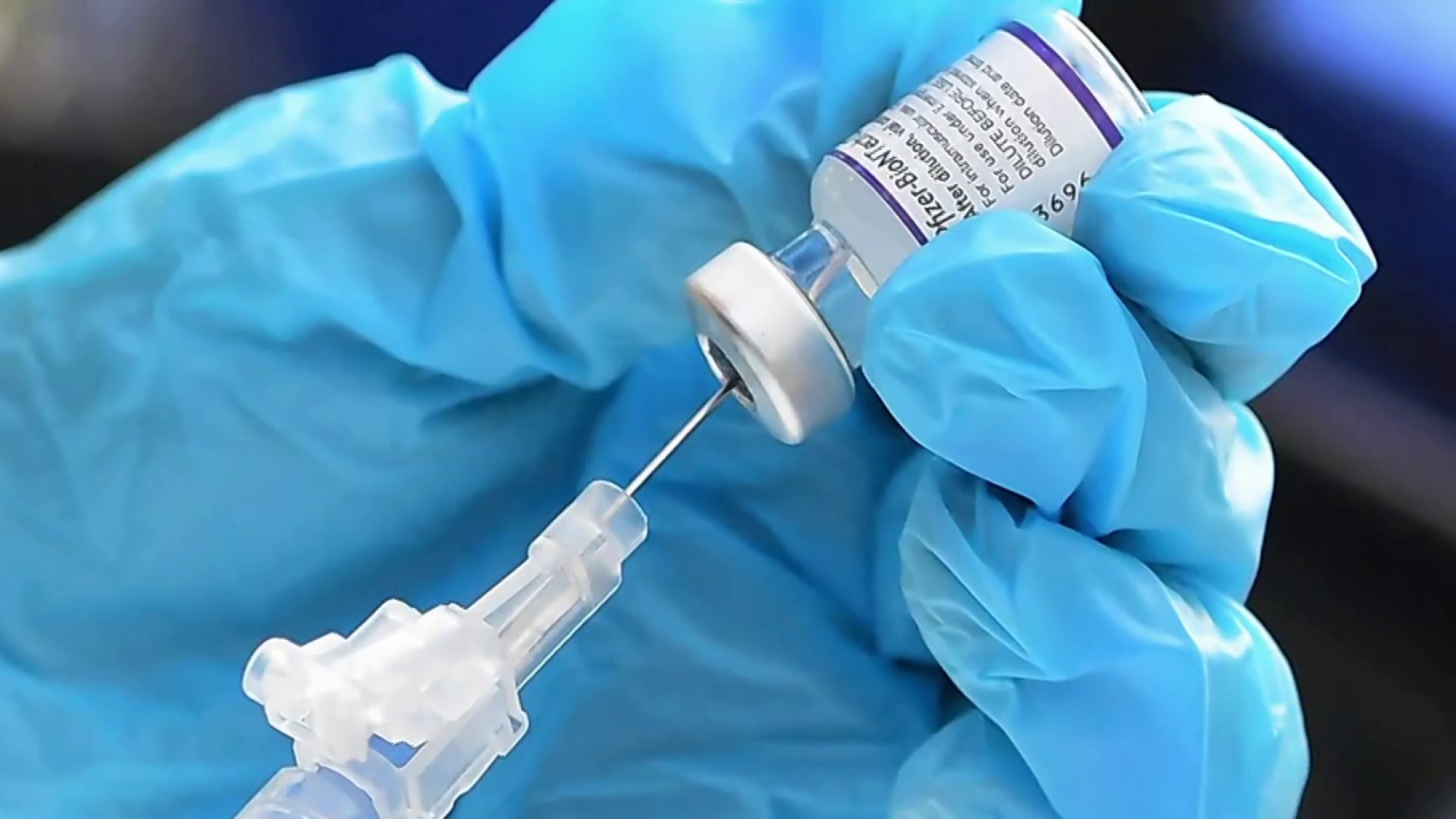The Revised Versions Of Covid-19 Boosted From Pfizer And Moderna Have Been Approved By The FDA
The revised versions of Covid-19 boosted from Pfizer and Moderna have been approved by the FDA on Wednesday. The revised Covid-19 vaccinations have just been granted emergency use permission in the US for the first time. Both vaccines are bivalent and combine the company's initial shot with another that specifically targets the BA.4 and BA.5 Omicron sublineages.
Author:Suleman ShahReviewer:Han JuSep 01, 202237 Shares755 Views

The revised versions of Covid-19 boosted from Pfizer and Moderna have been approved by the FDA on Wednesday. The revised Covid-19 vaccinations have just been granted emergency use permission in the US for the first time.
Both vaccines are bivalent and combine the company's initial shot with another that specifically targets the BA.4 and BA.5 Omicron sublineages.
The new vaccination from Pfizer comes in 30-microgram doses that are approved for persons 12 and older. The modernized vaccination by Moderna is available in 50-microgram doses for adults (18 years of age and older).
After the US Centers for Disease Control and Prevention endorse them, the shots can be given. The vaccination advisory council for the CDC will vote on whether to endorse promoting the use of the boosters on Thursday. The recommendation must then have the CDC director's approval.
If the CDC gave the go-ahead, new boosters may be given within a few days to both younger patients who weren't eligible for an additional booster during the most recent wave of instances and older patients who may have received a booster just a few months ago.
Booster Shift
The new vaccines replace the booster dose that patients over the age of 12 receive, but not the shots for the initial series.
The monovalent mRNA COVID-19 vaccines "are not allowed with today's authorization as booster doses for individuals 12 years of age and older," the FDA stated.
If a person has completed their main series and at least two months have passed since their last dose of the vaccine, they are qualified for the Pfizer bivalent booster. Moderna boosters are available on the same schedule to people who are 18 years of age and older.
People who are too young to receive the most recent booster shot can still receive the older shot as a booster.
The FDA promised to "work promptly" to review any more requests for the approval of bivalent boosters for children. Pfizer stated in a newsrelease that it plans to submit an application for authorization of its revised booster for children ages 5 through 11 in the early part of October and that it is working to develop an application for children ages 6 months through 4 years.
“„"We want to ensure that adults and the adolescents covered by this authorization are able to receive the most modern booster vaccine, which is why we are no longer authorizing the monovalent — the original — booster for administration as a booster dose to those populations," Dr. Peter Marks, director of the FDA's Center for Biologics Evaluation and Research, said during a news briefing.
The CDC reports that an initial set of Covid-19 vaccinations has been administered to almost two-thirds of the whole US population. A booster has also been given to less than half of people with their initial series and less than a third of the entire population.
According to Marks, there is currently no strategy in place to phase out the earlier vaccines used in the primary series, but because we are in a "transitional year," it is important for everyone to have a "good base upon which we build... which will help protect us against the unknown."
The time has come to think about having a booster dose, according to Marks, if you haven't had one yet or if it's been a while since your last one.
Officials Support Expedited Approval
The new Covid vaccination booster's quick emergency use authorization was defended by FDA officials on Wednesday. Last week, Pfizer and Moderna submitted applications for approval.
The FDA has taken considerable effort to ensure that these upgraded boosters meet its stringent safety, efficacy, and manufacturing quality standards for emergency use authorization, Marks said. "The public can rest certain that this has been done with great care," he said.
The EPA has approved these boosters ahead of the outcomes of human clinical trials, but after tests in mice.
This is a first for Covid-19 vaccinations, although it is similar to how annual flu vaccines are tested each year. The strategy has caused some debate among specialists in vaccines.
“„The EPA did not convene a fresh meeting of its independent vaccine advisers, who frequently provide input on vaccine modifications; the advisory group had previously provided their opinions on modernizing the original vaccine in meetings during the summer.FDA Commissioner Dr. Robert Califf stated during the news briefing that "we have been planning for and receiving comments on our approach to revised boosters since early this year."
The FDA is confident in the information underlying these most recent booster authorizations because it has a lot of experience analyzing strain alterations for influenza vaccines.
The FDA stated that it was basing its decision on more than a year of experience with hundreds of millions of doses of mRNA vaccines given around the world, in addition to the animal findings.
Additionally, they are depending on human clinical studies of various bivalent vaccinations that are directed against the original Omicron strain. Although that vaccination has received authorization in the UK, it won't be offered in the US. Clinical trials for the bivalent BA vaccines from Pfizer and Moderna involved more than 1,400 people.
According to Marks on Wednesday, human investigations of the bivalent boosters, which mix the initial vaccination from the firms with one that specifically targets the BA.4 and BA.5 Omicron sublineages, have begun. A further month or two should bring data from such studies.
Vaccine Achievement
Dr. Ashish Jha, who is in charge of the White House's Covid-19 response, told CNN on Wednesdaythat "America is the only government in the world that has authorized a bivalent vaccine where the bivalent vaccine targets the viruses out there."
“„"For the flu, we attempt to do this every year. We hardly ever succeed in hitting the mark. The FDA has put a lot of effort into this. Leaning on some excellent modeling and the sciencehas been the focus. the production of vaccinations that are going to be matched, and then really pushing the corporations to do so."
Transmission in the United States has been dominated for more than two months by the Omicron BA.5 subvariant. According to the most recent estimates from the CDC, it was responsible for 89% - or nearly 9 out of 10 - new Covid infections in our country last week.
The BA.4.6 variety, a more recent branch of the BA.4 variant, has steadily increased in prevalence to take the second position. It contributed to around 8% of new infections nationwide last week, but the Midwest - Kansas, Iowa, Missouri, and Nebraska - seems to be where it's really taken off, accounting for about 17% of all new infections.
What's Next?
Moderna and Pfizer are undertaking research on humans to evaluate the efficacy of updated shots, including how they fare if a new mutant emerges.
Additionally, Pfizer intends to request in early October from the FDA the approval of revised boosters for children aged 5 to 11.
The COVID-19 vaccine recipe has undergone its first U.S. update, which is a significant but expected next step, similar to how the flu vaccine is revised each year.
Additionally, the United States is not alone. Recently, Britain made the decision to make the Moderna combination shot, which targets the original BA.1 omicron strain, available to anyone over 50. Regulators in Europe are debating whether to approve either one or both of the new formulas.

Suleman Shah
Author
Suleman Shah is a researcher and freelance writer. As a researcher, he has worked with MNS University of Agriculture, Multan (Pakistan) and Texas A & M University (USA). He regularly writes science articles and blogs for science news website immersse.com and open access publishers OA Publishing London and Scientific Times. He loves to keep himself updated on scientific developments and convert these developments into everyday language to update the readers about the developments in the scientific era. His primary research focus is Plant sciences, and he contributed to this field by publishing his research in scientific journals and presenting his work at many Conferences.
Shah graduated from the University of Agriculture Faisalabad (Pakistan) and started his professional carrier with Jaffer Agro Services and later with the Agriculture Department of the Government of Pakistan. His research interest compelled and attracted him to proceed with his carrier in Plant sciences research. So, he started his Ph.D. in Soil Science at MNS University of Agriculture Multan (Pakistan). Later, he started working as a visiting scholar with Texas A&M University (USA).
Shah’s experience with big Open Excess publishers like Springers, Frontiers, MDPI, etc., testified to his belief in Open Access as a barrier-removing mechanism between researchers and the readers of their research. Shah believes that Open Access is revolutionizing the publication process and benefitting research in all fields.

Han Ju
Reviewer
Hello! I'm Han Ju, the heart behind World Wide Journals. My life is a unique tapestry woven from the threads of news, spirituality, and science, enriched by melodies from my guitar. Raised amidst tales of the ancient and the arcane, I developed a keen eye for the stories that truly matter. Through my work, I seek to bridge the seen with the unseen, marrying the rigor of science with the depth of spirituality.
Each article at World Wide Journals is a piece of this ongoing quest, blending analysis with personal reflection. Whether exploring quantum frontiers or strumming chords under the stars, my aim is to inspire and provoke thought, inviting you into a world where every discovery is a note in the grand symphony of existence.
Welcome aboard this journey of insight and exploration, where curiosity leads and music guides.
Latest Articles
Popular Articles


